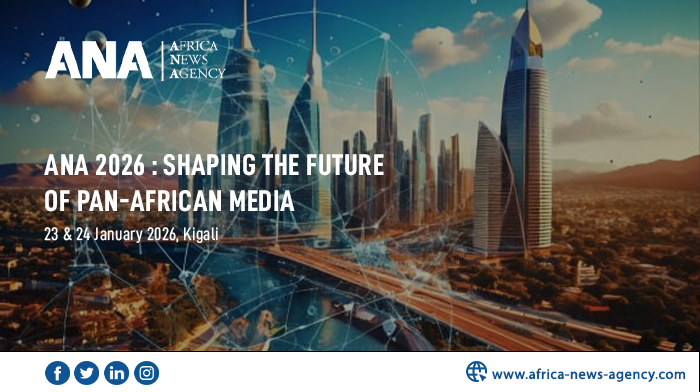Farid Fezoua : « Why African Creative Industries Deserve Serious Capital and Why Ignoring Them Costs Us All »
Africa inspires the world through its music, film, fashion, and art. Yet its creative industries remain underfunded, poorly structured, and too often dismissed as marginal. In this Cart’Afrik, Farid Fezoua (IFC – World Bank Group) highlights why serious investment in Africa’s creative sector is not only an economic opportunity but a cultural and social imperative for the continent’s future. Par Farid Fezoua*

It is tempting to romanticize creative industries in emerging markets, to talk about untapped talent, local cultural richness, and the promise of global reach. But this romanticization is far from reality. Talent has never been an issue. These industries have been creating, exporting, and shaping global culture for decades. From reggae’s revolutionary sound in the 1970s to Bollywood’s cinematic dominance in the early 2000s, and the rise of K-pop and Latin pop in recent years. Creative industries in emerging markets have long driven global trends, often ahead of the investment that followed.
» In 2021, Burna Boy’s sold-out concert at London’s O2 Arena was a landmark moment : the first time a Nigerian artist headlined and filled the 20,000-seat venue
Africa’s creatives are no exception. In 2021, Burna Boy’s sold-out concert at London’s O2 Arena was a landmark moment, the first time a Nigerian artist headlined and filled the 20,000-seat venue. This event symbolized the growing influence of African artists on the world stage. Meanwhile, Nollywood produces around 2,500 films annually, making it the world’s second-largest film industry by output, outpacing Hollywood’s roughly 700 films per year. These achievements underscore Africa’s outsized impact on global culture.
Yet, despite these undeniable cultural triumphs, the industries behind them remain undercapitalized and underdeveloped. This disconnect raises a pressing question: Why do sectors fueling global culture struggle to access the serious capital they need to scale?
The Real Bottleneck: Capital, Policy, and Infrastructure
The real bottleneck is not creativity – it is structural: capital, policy, and infrastructure. Despite generating over $2 trillion in annual revenue and supporting nearly 50 million jobs globally, creative industries lack both capital and institutional support. They operate in fragmented ecosystems that lack the financial infrastructure, policy frameworks, and investor confidence that more traditional sectors enjoy. This disconnect carries real costs in lost revenue, limited job generation and innovation across economies that would yet stand to benefit most.
« There is also a perception gap. Creative sectors are still seen by many as lifestyle ventures, not serious businesses. That view leads to underinvestment and missed opportunities »
There is also a perception gap. Creative sectors are still seen by many as lifestyle ventures, not serious businesses. That view leads to underinvestment and missed opportunities, a problem that is particularly urgent in Africa. The continent will account for 70 percent of global youth population growth over the next three decades. That demographic shift is already reflected in global culture, with African creatives driving global taste and influencing consumer markets across music, film, fashion, and digital platforms. The question is no longer whether Africa’s creative industries can compete. It is whether the systems around them are equipped to translate that momentum into sustainable economic growth.
Capital cannot fix what structure ignores

This urgency is precisely why institutions like IFC step in. We apply the same rigor and discipline to creative industries as we do to traditional sectors like energy, agriculture, or infrastructure: by carefully analyzing market dynamics, identifying which specific segment is the most value-creating, and supporting business models with the potential to scale and drive impact sustainably. To date, and only two years after establishing creative industries as a strategic priority, IFC has invested over $800 million in creative industries, providing patient, risk-tolerant capital that these sectors rarely attract but greatly need.
« What drives real growth in creative industries is not ad-hoc funding, it is deliberate and strategic supporting ecosystem-building »
These investments reflect a clear recognition of the sector’s potential. Their impact extends beyond direct revenues; every dollar invested generates two to seven dollars of economic activity across related industries like tourism, manufacturing, and technology services. These investments also contribute to job creation globally, particularly for youth and women, who make up a significant portion of this dynamic and rapidly growing workforce. But capital alone is not enough. What drives real growth in creative industries is not ad-hoc funding, it is deliberate and strategic supporting ecosystem-building. Ecosystems help to develop production, strengthen intellectual property frameworks, and build infrastructure that connects talent to markets. That is why IFC adopts a holistic approach combining capital with industry partnerships, policy engagement, and technical support because creativity cannot scale in a vacuum.
« Culture has always been one of Africa’s greatest exports. It is time we treated it as one of the continent’s smartest investments »
Africa’s creative industries are ready for investment but the systems around them need to catch up. Unlocking this potential requires deliberate action. Governments need to build financial and regulatory systems that treat creative industries as serious economic sectors. Investors must bring long-term capital with an understanding of how these industries operate, grow, and scale. Development institutions have a role to play in reducing risk and supporting infrastructure. Culture has always been one of Africa’s greatest exports. It is time we treated it as one of the continent’s smartest investments.
*Farid Fezoua is Director of Disruptive Technologies, Services, and Funds at the International Finance Corporation, World Bank Group.







